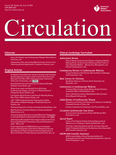
Leonard Zelig, meet Zvi Herzig.
The journal Circulation has issued an expression of concern about a 2015 letter, putatively written by Herzig, in which the author poked holes in a review article about e-cigarettes.
According to the EoC, however, Herzig, like Zelig, may be a bit of a chameleon.
Continue reading Letter on vaping science paper earns expression of concern because author made up a degree




 A major correction has been posted for an update to international guidelines on reporting outcomes of people receiving cardiopulmonary resuscitation (CPR).
A major correction has been posted for an update to international guidelines on reporting outcomes of people receiving cardiopulmonary resuscitation (CPR).
